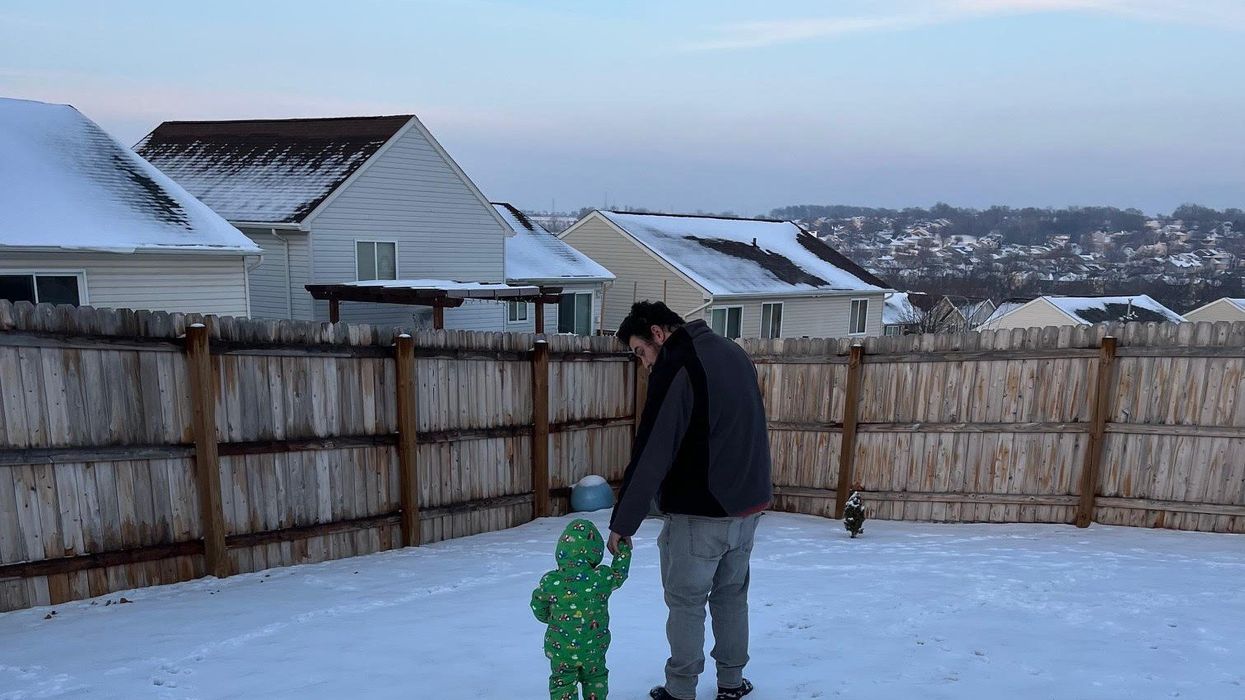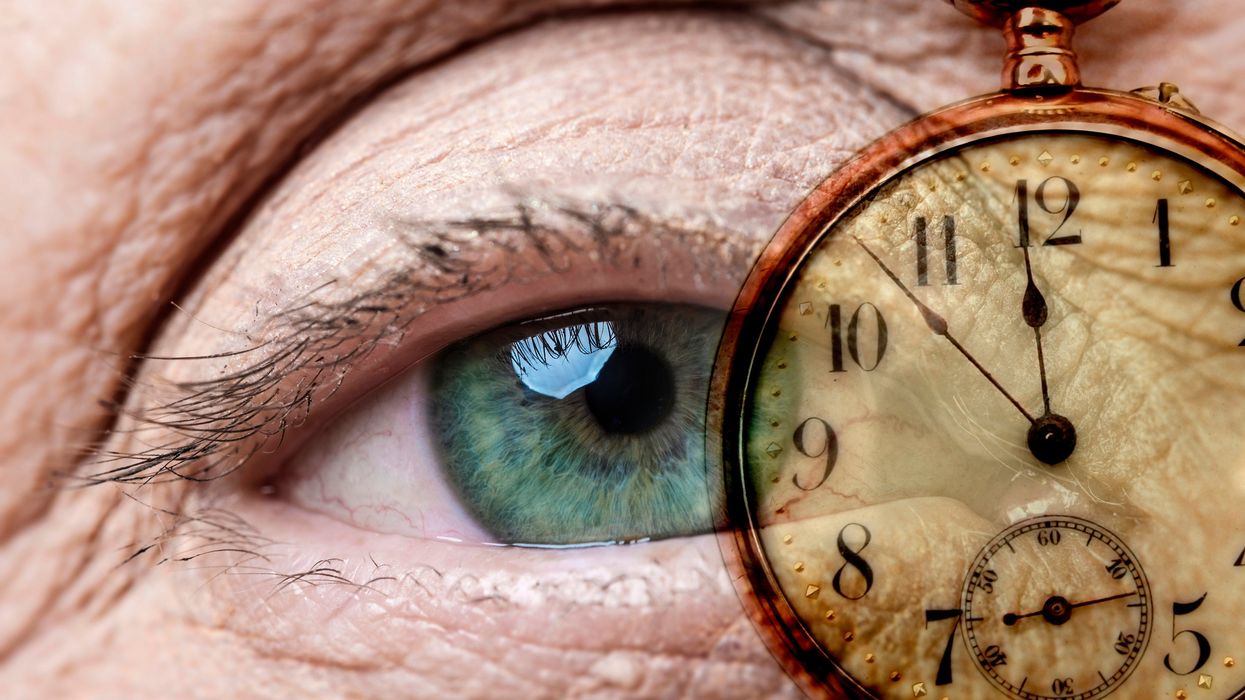Angry Citizens Pressure the World Health Organization to Fully Recognize COVID’s Airborne Spread
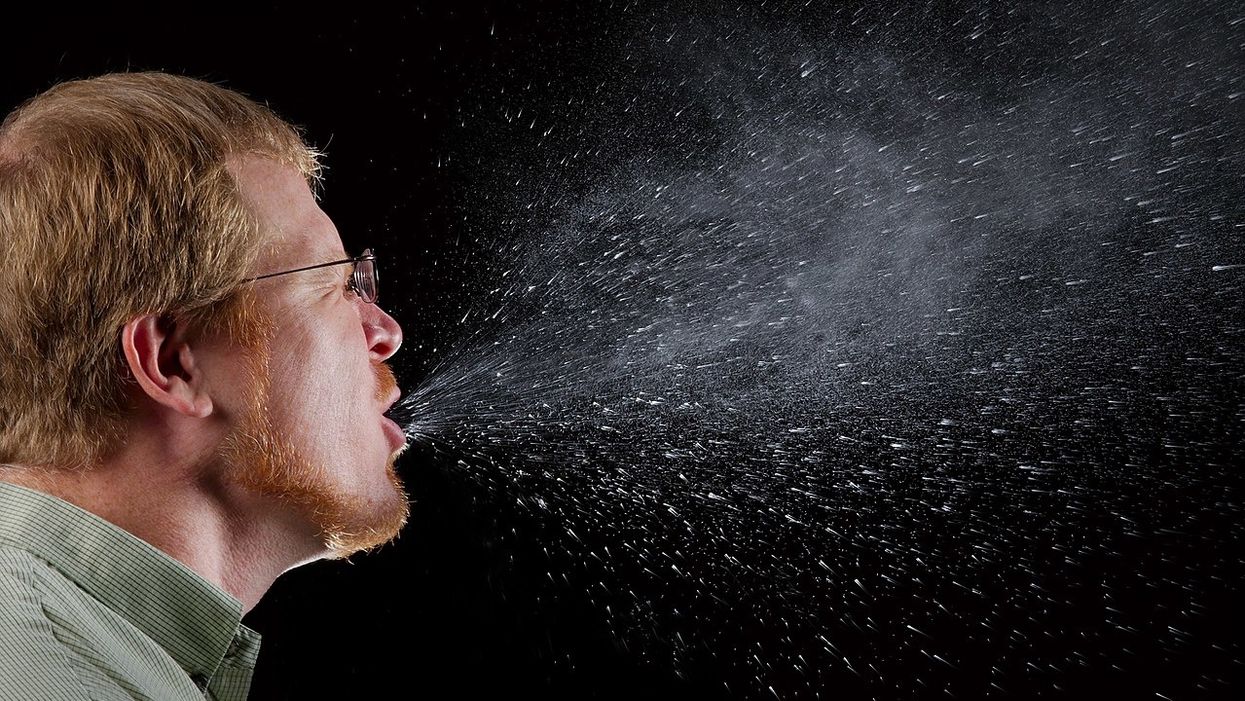
Aerosol scientists say that the evidence points to airborne transmission of COVID-19 "beyond any reasonable doubt."
A new citizen movement is gathering steam to try to convince the influential World Health Organization to change its messaging about how the coronavirus is transmitted.
The new petition "COVID is Airborne" (www.covidisairborne.org) started in early November and has approximately 3,000 signatures. During this particularly dangerous acceleration of the pandemic, the petition's backers allege that the WHO is failing the public with mixed messaging and thus inadvertently fueling the wildfire of transmission.
"Early on in the pandemic, [WHO Director General Dr. Tedros Adhanom Ghebreyesus] said that coronavirus is airborne, but then in March, WHO tweeted that COVID-19 is not airborne, saying that it is primarily transmitted via droplets that are too heavy to hang in the air," says petition co-creator Jessica Bassett Allen.
The organization's late March messaging, still available on social media, is a digital graphic saying, "FACT CHECK: COVID-19 is NOT Airborne".

Screenshot of WHO's Tweet from March 28, 2020 that is still published.
The petition asks for a course correct: "We, citizens of the world, request that the World Health Organization (WHO) recognize the compelling scientific evidence that SARS-CoV-2 spreads by aerosol transmission ("airborne") and urge the WHO to immediately develop and initiate clear recommendations to enable people to protect themselves."
In the vacuum of the WHO's inaction, aerosol scientists around the world scrambled to raise awareness of what they saw as a grave error.
"Almost immediately after that [March 28] announcement, we formed a group of 239 scientists from many countries and disciplines to convince them that they should acknowledge that there is airborne transmission, but we find that they are totally dead set against it," says Dr. Jose Jimenez, a chemistry professor at the University of Colorado at Boulder who has studied aerosols for 20 years. He supports the citizen petition.
In a letter to the WHO back in July, he and his colleagues wrote: "Studies by the signatories and other scientists have demonstrated beyond any reasonable doubt that viruses are released during exhalation, talking, and coughing in microdroplets small enough to remain aloft in air and pose a risk of exposure at distances beyond 1–2 m from an infected individual."
The scientists have also gone direct to the public with their findings: They published a comprehensive Google doc with detailed answers to many people's frequently asked questions about how to protect themselves, addressing issues ranging from the best masks and air filters to how to deal with passing someone outdoors and much more.
It's worth noting that the CDC has now modified its COVID FAQ to include airborne transmission as a "less common way" for the virus to spread. This update took place after the CDC stated in September that it is "possible" the virus spreads via airborne transmission – only to reverse course and remove the language from its website several days later. The CDC's website now states that some viruses, including SARS-Cov-2, "may be able to infect people who are further than 6 feet away from the person who is infected or after that person has left the space."
Basset Allen notes that after the scientists' open letter, the WHO "added ventilation to public communications about how to prevent infection, but they haven't explained why."
When contacted, a WHO representative had no specific comment and shared its late March announcement as well as its latest guidelines on transmission. In part, its statement says, "Current evidence suggests that the main way the virus spreads is by respiratory droplets among people who are in close contact with each other. Aerosol transmission can occur in specific settings, particularly in indoor, crowded and inadequately ventilated spaces, where infected person(s) spend long periods of time with others, such as restaurants, choir practices, fitness classes, nightclubs, offices and/or places of worship. More studies are underway to better understand the conditions in which aerosol transmission is occurring outside of medical facilities where specific medical procedures, called aerosol-generating procedures, are conducted."
A forceful and clear message acknowledging the evidence could make it easier to standardize school and office ventilation, petitioners argue.
Aerosol scientist Jimenez was dismayed by the WHO's response.
"The first part is an error in my opinion," he says. "Current evidence suggests that the main way the virus spreads is inhalation of aerosols.…WHO is way behind, unfortunately.
"The second part is incomplete," Jimenez continues. "Aerosol transmission can happen in those indoor crowded low-ventilation spaces. But if aerosols can accumulate under those conditions and cause infection, they must be extremely infective in close proximity when talking, since they are much more concentrated there. Just like talking close to a smoker you would inhale much more smoke (which is an aerosol) than if you were in the same room, but let's say 10 or 15 feet away."
He adds, "The WHO and others are making the assumption that if this goes through the air, then everyone who is infected is putting a lot of virus into the air at all times, but we know that's wrong: People are infectious for a short period of time before and during their symptoms. In China, they have measured how much virus comes out of people, and they see that the emission is sporadic: The virus can come out in millions of viral [particles] per hour, but it doesn't happen all the time."
The petition's co-creator, Basset Allen, says that her life experience showed her the best way to make a change. "My involvement with this effort is entirely personal," she says. "I was first introduced to HIV treatment activism as a college student and what I learned about campaigning and power has been relevant in almost every other project I've worked on since then. HIV activism taught me that everyday people can win big, life-saving policy changes if they build expertise and work strategically to push decision makers."
The petition and its advocates argue that the WHO's mixed messaging is causing real harm. For instance, a forceful and clear message acknowledging the evidence could make it easier to standardize school and office ventilation, they argue. Anecdotally, some schools have refused to install HEPA filtration in their classrooms due to a lack of specific guidance from health agencies. (Note: The CDC now recommends improving central air filtration and considering the use of portable HEPA filters in classrooms.)
As the holidays approach, a clear and unified message from all influential health agencies would also help people understand why it is still important to wear masks while physical distancing, especially indoors.
"Personally, I cheered when I heard President-Elect Biden mention ventilation upgrades in schools during the first 10 minutes of his October town hall event, and again in the second debate," Basset Allen says. "Unfortunately, we're still more than two months away from the Biden administration taking over the U.S. COVID-19 response and we have to do absolutely everything we can right now to save as many lives as possible. Increasing awareness of airborne transmission and mitigation strategies can't wait. WHO can use its power to help close that gap, here and around the world."
Bivalent Boosters for Young Children Are Elusive. The Search Is On for Ways to Improve Access.
Theo, an 18-month-old in rural Nebraska, walks with his father in their backyard. For many toddlers, the barriers to accessing COVID-19 vaccines are many, such as few locations giving vaccines to very young children.
It’s Theo’s* first time in the snow. Wide-eyed, he totters outside holding his father’s hand. Sarah Holmes feels great joy in watching her 18-month-old son experience the world, “His genuine wonder and excitement gives me so much hope.”
In the summer of 2021, two months after Theo was born, Holmes, a behavioral health provider in Nebraska lost her grandparents to COVID-19. Both were vaccinated and thought they could unmask without any risk. “My grandfather was a veteran, and really trusted the government and faith leaders saying that COVID-19 wasn’t a threat anymore,” she says.” The state of emergency in Louisiana had ended and that was the message from the people they respected. “That is what killed them.”
The current official public health messaging is that regardless of what variant is circulating, the best way to be protected is to get vaccinated. These warnings no longer mention masking, or any of the other Swiss-cheese layers of mitigation that were prevalent in the early days of this ongoing pandemic.
The problem with the prevailing, vaccine centered strategy is that if you are a parent with children under five, barriers to access are real. In many cases, meaningful tools and changes that would address these obstacles are lacking, such as offering vaccines at more locations, mandating masks at these sites, and providing paid leave time to get the shots.
Children are at risk
Data presented at the most recent FDA advisory panel on COVID-19 vaccines showed that in the last year infants under six months had the third highest rate of hospitalization. “From the beginning, the message has been that kids don’t get COVID, and then the message was, well kids get COVID, but it’s not serious,” says Elias Kass, a pediatrician in Seattle. “Then they waited so long on the initial vaccines that by the time kids could get vaccinated, the majority of them had been infected.”
A closer look at the data from the CDC also reveals that from January 2022 to January 2023 children aged 6 to 23 months were more likely to be hospitalized than all other vaccine eligible pediatric age groups.
“We sort of forced an entire generation of kids to be infected with a novel virus and just don't give a shit, like nobody cares about kids,” Kass says. In some cases, COVID has wreaked havoc with the immune systems of very young children at his practice, making them vulnerable to other illnesses, he said. “And now we have kids that have had COVID two or three times, and we don’t know what is going to happen to them.”
Jumping through hurdles
Children under five were the last group to have an emergency use authorization (EUA) granted for the COVID-19 vaccine, a year and a half after adult vaccine approval. In June 2022, 30,000 sites were initially available for children across the country. Six months later, when boosters became available, there were only 5,000.
Currently, only 3.8% of children under two have completed a primary series, according to the CDC. An even more abysmal 0.2% under two have gotten a booster.
Ariadne Labs, a health center affiliated with Harvard, is trying to understand why these gaps exist. In conjunction with Boston Children’s Hospital, they have created a vaccine equity planner that maps the locations of vaccine deserts based on factors such as social vulnerability indexes and transportation access.
“People are having to travel farther because the sites are just few and far between,” says Benjy Renton, a research assistant at Ariadne.
Michelle Baltes-Breitwisch, a pharmacist, and her two-year-old daughter, Charlee, live in Iowa. When the boosters first came out she expected her toddler could get it close to home, but her husband had to drive Charlee four hours roundtrip.
This experience hasn’t been uncommon, especially in rural parts of the U.S. If parents wanted vaccines for their young children shortly after approval, they faced the prospect of loading babies and toddlers, famous for their calm demeanor, into cars for lengthy rides. The situation continues today. Mrs. Smith*, a grant writer and non-profit advisor who lives in Idaho, is still unable to get her child the bivalent booster because a two-hour one-way drive in winter weather isn’t possible.
It can be more difficult for low wage earners to take time off, which poses challenges especially in a number of rural counties across the country, where weekend hours for getting the shots may be limited.
Protect Their Future (PTF), a grassroots organization focusing on advocacy for the health care of children, hears from parents several times a week who are having trouble finding vaccines. The vaccine rollout “has been a total mess,” says Tamara Lea Spira, co-founder of PTF “It’s been very hard for people to access vaccines for children, particularly those under three.”
Seventeen states have passed laws that give pharmacists authority to vaccinate as young as six months. Under federal law, the minimum age in other states is three. Even in the states that allow vaccination of toddlers, each pharmacy chain varies. Some require prescriptions.
It takes time to make phone calls to confirm availability and book appointments online. “So it means that the parents who are getting their children vaccinated are those who are even more motivated and with the time and the resources to understand whether and how their kids can get vaccinated,” says Tiffany Green, an associate professor in population health sciences at the University of Wisconsin at Madison.
Green adds, “And then we have the contraction of vaccine availability in terms of sites…who is most likely to be affected? It's the usual suspects, children of color, disabled children, low-income children.”
It can be more difficult for low wage earners to take time off, which poses challenges especially in a number of rural counties across the country, where weekend hours for getting the shots may be limited. In Bibb County, Ala., vaccinations take place only on Wednesdays from 1:45 to 3:00 pm.
“People who are focused on putting food on the table or stressed about having enough money to pay rent aren't going to prioritize getting vaccinated that day,” says Julia Raifman, assistant professor of health law, policy and management at Boston University. She created the COVID-19 U.S. State Policy Database, which tracks state health and economic policies related to the pandemic.
Most states in the U.S. lack paid sick leave policies, and the average paid sick days with private employers is about one week. Green says, “I think COVID should have been a wake-up call that this is necessary.”
Maskless waiting rooms
For her son, Holmes spent hours making phone calls but could uncover no clear answers. No one could estimate an arrival date for the booster. “It disappoints me greatly that the process for locating COVID-19 vaccinations for young children requires so much legwork in terms of time and resources,” she says.
In January, she found a pharmacy 30 minutes away that could vaccinate Theo. With her son being too young to mask, she waited in the car with him as long as possible to avoid a busy, maskless waiting room.
Kids under two, such as Theo, are advised not to wear masks, which make it too hard for them to breathe. With masking policies a rarity these days, waiting rooms for vaccines present another barrier to access. Even in healthcare settings, current CDC guidance only requires masking during high transmission or when treating COVID positive patients directly.
“This is a group that is really left behind,” says Raifman. “They cannot wear masks themselves. They really depend on others around them wearing masks. There's not even one train car they can go on if their parents need to take public transportation… and not risk COVID transmission.”
Yet another challenge is presented for those who don’t speak English or Spanish. According to Translators without Borders, 65 million people in America speak a language other than English. Most state departments of health have a COVID-19 web page that redirects to the federal vaccines.gov in English, with an option to translate to Spanish only.
The main avenue for accessing information on vaccines relies on an internet connection, but 22 percent of rural Americans lack broadband access. “People who lack digital access, or don’t speak English…or know how to navigate or work with computers are unable to use that service and then don’t have access to the vaccines because they just don’t know how to get to them,” Jirmanus, an affiliate of the FXB Center for Health and Human Rights at Harvard and a member of The People’s CDC explains. She sees this issue frequently when working with immigrant communities in Massachusetts. “You really have to meet people where they’re at, and that means physically where they’re at.”
Equitable solutions
Grassroots and advocacy organizations like PTF have been filling a lot of the holes left by spotty federal policy. “In many ways this collective care has been as important as our gains to access the vaccine itself,” says Spira, the PTF co-founder.
PTF facilitates peer-to-peer networks of parents that offer support to each other. At least one parent in the group has crowdsourced information on locations that are providing vaccines for the very young and created a spreadsheet displaying vaccine locations. “It is incredible to me still that this vacuum of information and support exists, and it took a totally grassroots and volunteer effort of parents and physicians to try and respond to this need.” says Spira.
Kass, who is also affiliated with PTF, has been vaccinating any child who comes to his independent practice, regardless of whether they’re one of his patients or have insurance. “I think putting everything on retail pharmacies is not appropriate. By the time the kids' vaccines were released, all of our mass vaccination sites had been taken down.” A big way to help parents and pediatricians would be to allow mixing and matching. Any child who has had the full Pfizer series has had to forgo a bivalent booster.
“I think getting those first two or three doses into kids should still be a priority, and I don’t want to lose sight of all that,” states Renton, the researcher at Ariadne Labs. Through the vaccine equity planner, he has been trying to see if there are places where mobile clinics can go to improve access. Renton continues to work with local and state planners to aid in vaccine planning. “I think any way we can make that process a lot easier…will go a long way into building vaccine confidence and getting people vaccinated,” Renton says.
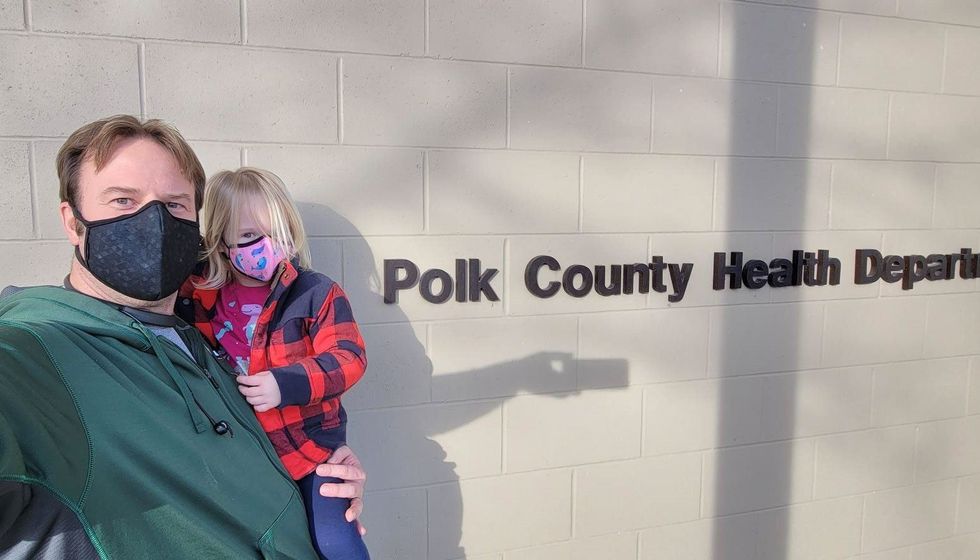
Michelle Baltes-Breitwisch, a pharmacist, and her two-year-old daughter, Charlee, live in Iowa. Her husband had to drive four hours roundtrip to get the boosters for Charlee.
Michelle Baltes-Breitwisch
Other changes need to come from the CDC. Even though the CDC “has this historic reputation and a mission of valuing equity and promoting health,” Jirmanus says, “they’re really failing. The emphasis on personal responsibility is leaving a lot of people behind.” She believes another avenue for more equitable access is creating legislation for upgraded ventilation in indoor public spaces.
Given the gaps in state policies, federal leadership matters, Raifman says. With the FDA leaning toward a yearly COVID vaccine, an equity lens from the CDC will be even more critical. “We can have data driven approaches to using evidence based policies like mask policies, when and where they're most important,” she says. Raifman wants to see a sustainable system of vaccine delivery across the country complemented with a surge preparedness plan.
With the public health emergency ending and vaccines going to the private market sometime in 2023, it seems unlikely that vaccine access is going to improve. Now more than ever, ”We need to be able to extend to people the choice of not being infected with COVID,” Jirmanus says.
*Some names were changed for privacy reasons.
Last month, a paper published in Cell by Harvard biologist David Sinclair explored root cause of aging, as well as examining whether this process can be controlled. We talked with Dr. Sinclair about this new research.
What causes aging? In a paper published last month, Dr. David Sinclair, Professor in the Department of Genetics at Harvard Medical School, reports that he and his co-authors have found the answer. Harnessing this knowledge, Dr. Sinclair was able to reverse this process, making mice younger, according to the study published in the journal Cell.
I talked with Dr. Sinclair about his new study for the latest episode of Making Sense of Science. Turning back the clock on mouse age through what’s called epigenetic reprogramming – and understanding why animals get older in the first place – are key steps toward finding therapies for healthier aging in humans. We also talked about questions that have been raised about the research.
Show links:
Dr. Sinclair's paper, published last month in Cell.
Recent pre-print paper - not yet peer reviewed - showing that mice treated with Yamanaka factors lived longer than the control group.
Dr. Sinclair's podcast.
Previous research on aging and DNA mutations.
Dr. Sinclair's book, Lifespan.
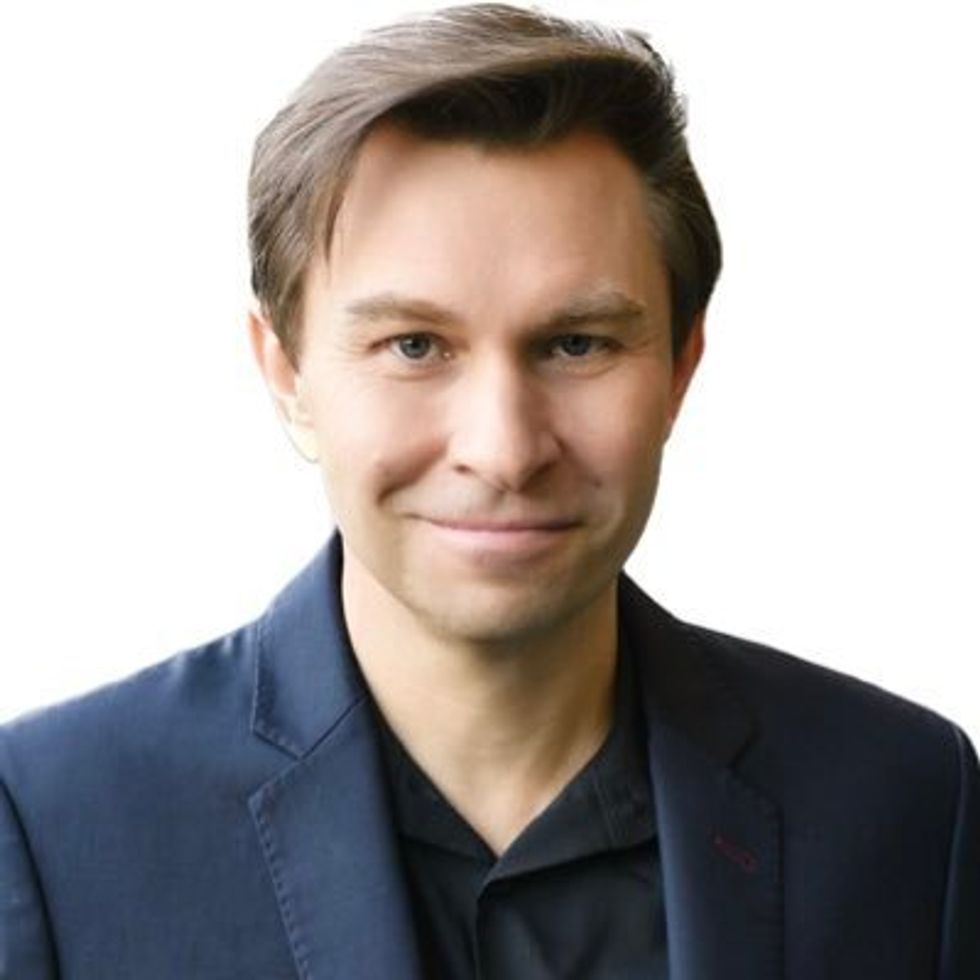
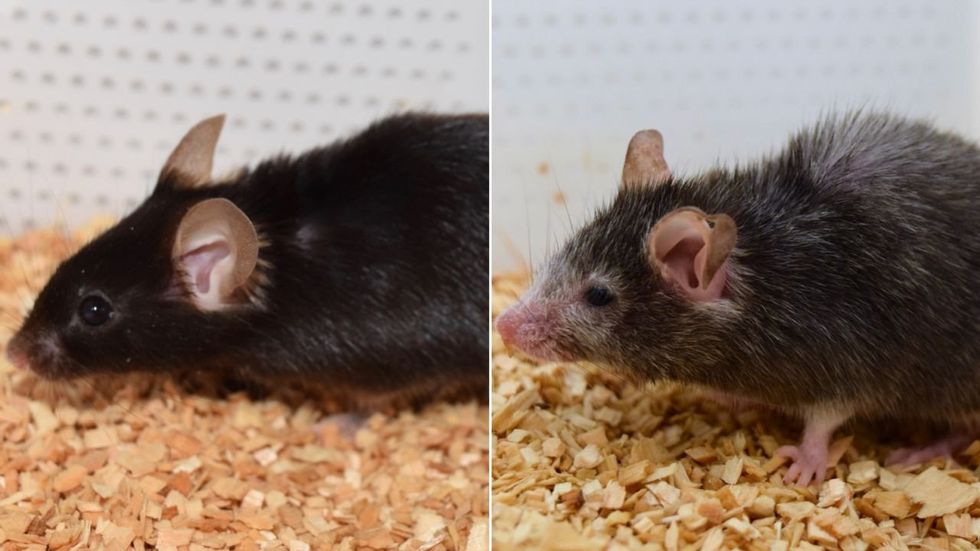
Harvard Medical School
